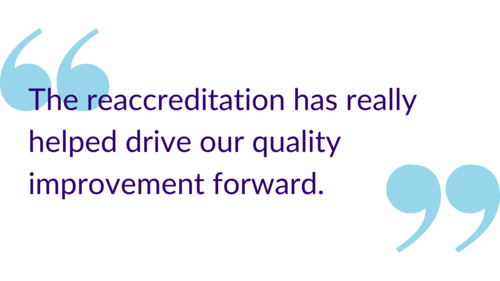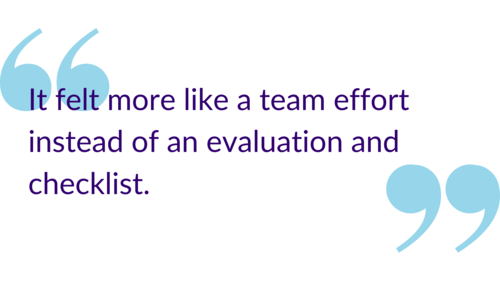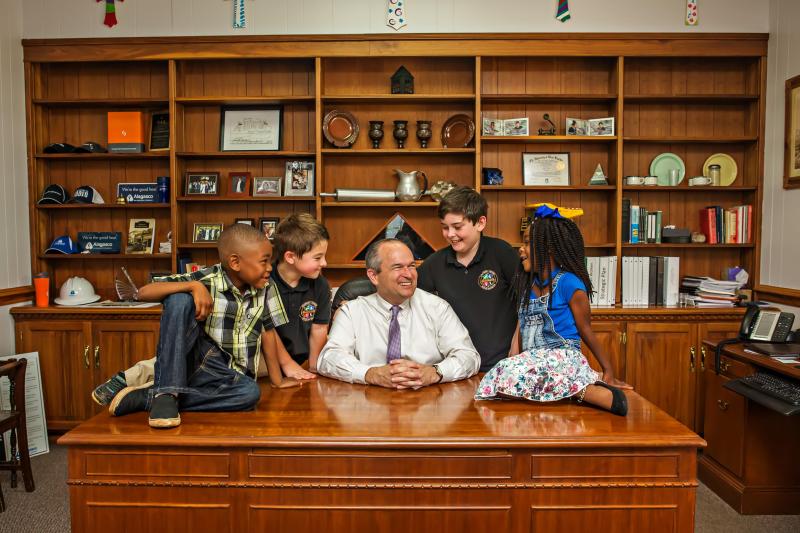Profiles in Accreditation: Family Service Lincoln
Welcome to the Council on Accreditation (COA) blog post series Profiles in Accreditation!
The organizations that COA accredits are diverse in both the communities they serve and their reasons for seeking accreditation (or reaccreditation). Profiles in Accreditation will explore the accreditation experience through the perspective of these organizations. Through them, we can discover the value of accreditation, best practices, lessons learned, and recommendations.
Organization profile
Name: Family Service Association
Location: Lincoln, Nebraska
First accredited: 1998
Latest reaccredition: 2019
Snapshot: Family Service is a nonprofit organization that has been providing services to the families of Lincoln, Nebraska for 125 years. They recently updated their mission to be “Helping Families Thrive.” Currently, Family Service provides families with four programs: Women, Infants, and Children; Child Care Food; Behavioral Health; and Out-of-School Time, which includes before- and after-school care, as well as summer care.
Two of Family Service’s four programs are accredited with COA: Behavioral Health and Out-of-School Time. Their Out-of-School Time program is their largest program. It consists of 14 before- and after-school care programs and seven Community Learning Center programs. Their Behavioral Health program provides licensed therapists to 22 schools within Lincoln Public Schools and six schools in Saunders County. It also includes of a Community Response Program, which connects families with community resources that will support families to meet their goals and strengthen relationships within the community.
Interview with Family Service Lincoln
For this Profiles in Accreditation post, we asked Director of Strategic Initiatives Jessica Radford, Ed.D. to share her experience at an organization that has been accredited by COA for the last ten years. Jessica told us how reaccreditation has helped drive the organization’s quality improvement forward. She also shared how she appreciated how COA accreditation felt not like an evaluation via checklist, but an effort from a team.
COA: What were some of the drivers for seeking reaccreditation this latest time around?
JR: It was important for our organization to seek reaccreditation to learn how quality programs and services are defined and to help us identify areas of growth. All our Management Team was new within the past two years. Reaccreditation provided us with the opportunity to really dig into the organization and its practices. We learned what was done historically, what was currently being done, and how we could improve it.
Accreditation helped us to evaluate and update practices that are oftentimes overlooked. Some of these included safety and risk assessments, HR audits, and an annual review of policies and procedures. It also helped us evaluate our system for communicating with staff and involving stakeholders. Sometimes we forget to evaluate our common organization practices and their effectiveness because we just keep doing things the way they’ve always been done. Accreditation helped us hone in on these practices and improve them.
COA: What about the COA accreditation process made you decide to partner with us?
JR: Our organization has been accredited with COA for the last ten years, and the staff take great pride in this accreditation. COA holds their organizations to high standards and has a rigorous accreditation process. So it was important for Family Service to continue this accreditation with COA for consistency, as well as to ensure we were providing good services to employees and families.

COA:How did you engage and communicate the value of accreditation to the entire organization during the accreditation process?
JR: We held a kick-off meeting where we brought everybody together and talked about the importance of accreditation, the process, and the role they would play. We provided updates through emails and meetings. When we received our accreditation, we had a cookie celebration and invited the board and stakeholders.
COA:What do you see as the main benefit of COA accreditation?
JR: The main benefit for us through our COA accreditation was the framework for evaluating and improving the organization and its practices. Sometimes it can feel overwhelming, not knowing where to begin with improvements or trying to identify what needs to be improved. COA provided a very thorough framework for us to follow, allowing us to assess the organization and its practices comprehensively so that we could target areas to work on. The standards also provided guidance for how to make improvements and what best practices are for nonprofit organizations.

COA: What about the accreditation process do you feel was most valuable to your organization?
JR: All of it. 😊
The standards were easy to understand and provided clear guidance. The staff at COA were very responsive and helpful. They always responded within a day anytime I emailed or called them, and they always had an answer for me. They were also very willing to take the time to help me and make sure I understood the process and standards.
The feedback given to us from our on-site reviewers was also very valuable and appreciated. For example, the on-site reviewers talked with us about the training of the organization. Following this conversation, we purchased an online training system and began implementing it. The system communicates with staff, tracks training completion, and provides lots of training options to staff.
COA: What did you like most about the accreditation process?
JR: I liked all the guidance that was provided through the accreditation process. The standards were very easy to understand and provided lots of explanations through the Interpretations. The staff at COA were so knowledgeable and helpful. The Intensive Accreditation Training was full of great information and guidance. Our on-site reviewers provided lots of great feedback on areas we can improve. The process really felt like a team effort.

COA: What was the biggest challenge during the accreditation process?
JR: Organizing all the evidence. 😊
I found it helpful to organize the standards and evidence into tables. I put together tables with three columns: Standard, Required Evidence, and Family Service Evidence. This helped me to keep track of what document went with what standard and to be sure I provided evidence for each of the areas of Required Evidence. It helped me organize it into more of a checklist.
COA: How has COA reaccreditation impacted operational success?
JR: The reaccreditation has really helped drive our quality improvement forward. It has given us specific areas to improve on and helped us set goals and objectives. It’s only been a few months since we received our accreditation and we have already made some great improvements.
Because of our accreditation, we have worked to improve the training we provide our employees. We have created an onboarding process which includes some safety trainings and some behavior trainings. We have created an annual training plan which includes monthly safety trainings for all staff and bi-monthly supervision trainings for all supervisors. The system we have implemented tracks trainings completed by staff in one on-line system. This has helped us to keep track of trainings as well as identify training needs for staff. This has not only improved our training program, but also the culture at our organization. Staff now feel that safety and training is a priority to Family Service.
We have also become more aware and thoughtful about reviewing our practices on a regular basis. We have implemented annual HR audits, stakeholder meetings and surveys to get feedback on our programs, annual reviews of policies and procedures to make sure they reflect what we are doing, quarterly safety checks and risk assessment reports, and improved data collection to help us analyze practices and programs.

COA: What are the top three pieces of advice or tips that you would give to an organization considering or currently undertaking the accreditation process for the first time?
JR: The coordinator of the process needs to be a very organized person. A large part of the process is collecting and organizing evidence to be submitted. If the person is already good at organizing projects and information, setting deadlines, and delegating duties, this will make the process less overwhelming.
Use your COA team. Do not be afraid to ask questions. Everybody on our COA team was so helpful. It felt more like a team effort instead of an evaluation and checklist.
Use the process as an opportunity to identify areas of growth. Do not try to look perfect for COA. Be honest about your practices and procedures. This will help you use the process to identify areas of growth and make improvements.

COA: Are there any other learnings or insights that you’d like to share?
JR: I cannot say enough good things about our accreditation team. Mary Glenn was amazing, and I couldn’t have done it without her. She was always so helpful and knowledgeable. Even when I felt overwhelmed or like we were doing things wrong, she helped guide me and reassure me that we were on the right track with things.
Our on-site reviewers were so pleasant and knowledgeable as well. They did a wonderful job at the introductory meeting explaining accreditation and the process to our board and staff. All our staff enjoyed having them on site and talking with them. Their feedback during the exit meeting was so valuable as well. It really gave us areas to improve on.
When we received our final accreditation report, nothing was a surprise because everybody had been so transparent through the process. It was really a team effort to get our accreditation, and COA was a big part of that team.
Thank you, Family Service Lincoln!
We would like to thank Jessica for her thoughtful insights into the reaccreditation process, and acknowledge the entire Family Service Lincoln board and team for embracing accreditation and collectively contributing to the promotion of best practices. Thank you, all!
Do you have an accreditation story to tell? Click here to share it. You could be the next organization we feature!



